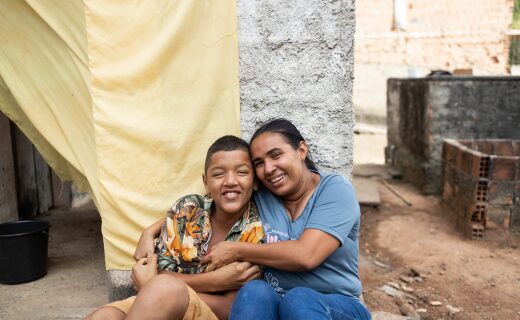Brazil
Capital City: Brasília
Population: 204.26 million
Life expectancy: male 69.99 years, female 77.25 years
Population with improved drinking water: urban 100%, rural 87%
Adult literacy rate: male 92.2%, female 92.9%
Infant mortality rate: 18.6/1,000
Under 5 mortality rate: 14/1,000
Religion: Roman Catholic 64.6%, other Catholic 0.4%, Protestant 22.2% (includes Adventist 6.5%, Assembly of God 2.0%, Christian Congregation of Brazil 1.2%, Universal Kingdom of God 1.0%, other Protestant 11.5%), other Christian 0.7%, Spiritist 2.2%, other 1.4%, none 8%, unspecified 0.4% (2010 est.)
Percentage living on less than $1.90 a day: 4.87%
A little bit of history
After three centuries of Portuguese rule, Brazil became an independent nation in 1822. By far the largest and most populous country in South America, the military regime, which had governed for decades, peacefully ceded power to a civilian government in 1985. The country continues to grow in industry and agriculture, exploiting its vast natural resources and a large labour pool. Internationally, the country is renowned for winning the Football World Cup five times, it’s vibrant carnival culture and the abundance of life within the country’s rainforest.
How the country makes a living
More than 60% of the country is covered in rainforest, which the Brazilian government continues to develop for industrial and agricultural use. Whilst Brazil is now South America’s leading economy, exploiting the rainforest comes at a price. Environmental damage is widespread and many indigenous populations are threatened as a result. Alongside that, the country faces inequality as the fruits of its growth are not distributed equally and unemployment continues to rise.
Challenges faced by the children
Brazil is the fifth most populous country in the world, with more than 202.6 million people, of which approximately 30% are under 18 years of age. 85% of Brazilians live in urban areas, which have developed haphazardly and are severely under-resourced as a result of their rapid and unplanned growth.
Although child labour is illegal in Brazil, there are approximately three million Brazilian boys and girls, aged 10 to 17 years, who are victims of child labour. For many families, it’s become normal for children to work, so changing the mindset of the nation is a huge challenge.
Compassion in Brazil
Compassion's work in Brazil began in 1987. More than 42,400 children are being released from poverty thanks to the care and support of 186 of our Brazilian church partners.
What sponsored children learn in brazil
In Brazil, children typically attend their Compassion projects before or after school. During typical project activities, sponsored children will cover topics such as ...
- Devotional and prayer time.
- Spiritual lessons. Children sing songs and learn Bible stories. Compassion Brazil gives age specific Bibles to children when they are both 6 and 10 years old as well as when they complete the programme.
- Break and snack time. Children can play in a safe environment and develop friendships. A snack consists of an egg sandwich with tea, fruit shake with crackers, fruit salad or bread.
- Social lessons. From conflict resolution to developing healthy self-esteem and a Godly character, children who often come from challenging home environments are taught social and personal skills.
- Lunch and social time. Each child receives a meal such as pasta, rice, vegetables and/or meat.
- Health lessons. Children are taught practical health and hygiene tips.
- Letter writing and career planning. Older children work with project staff to identify their strengths and interests, setting realistic goals for their future.
Additional activities offered by projects in Brazil:
- The projects encourage the children to participate in extracurricular activities such as sports tournaments, camps, dance performances, job fairs and field trips to parks, museums, zoos and local companies.
- Older sponsored children are typically involved in skills workshops such as hairdressing, information technology, and office skills.





